The Pandemic in India
The numbers are staggering and getting worse.
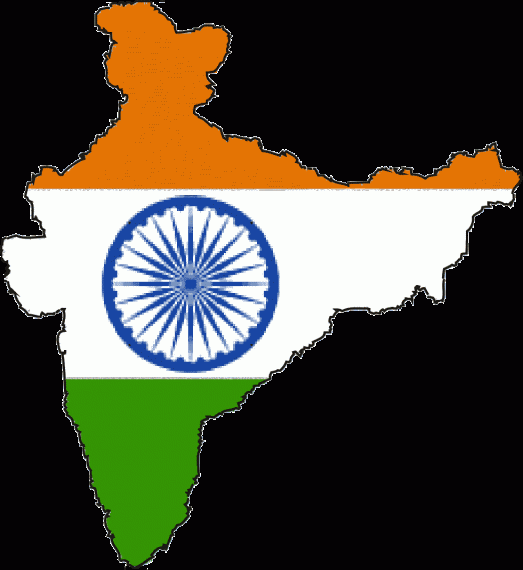
The ongoing surge of Covid-19 cases in India is truly tragic, especially when one considers that current conditions would suggest it is quite likely that these numbers are under-reporting cases and deaths:
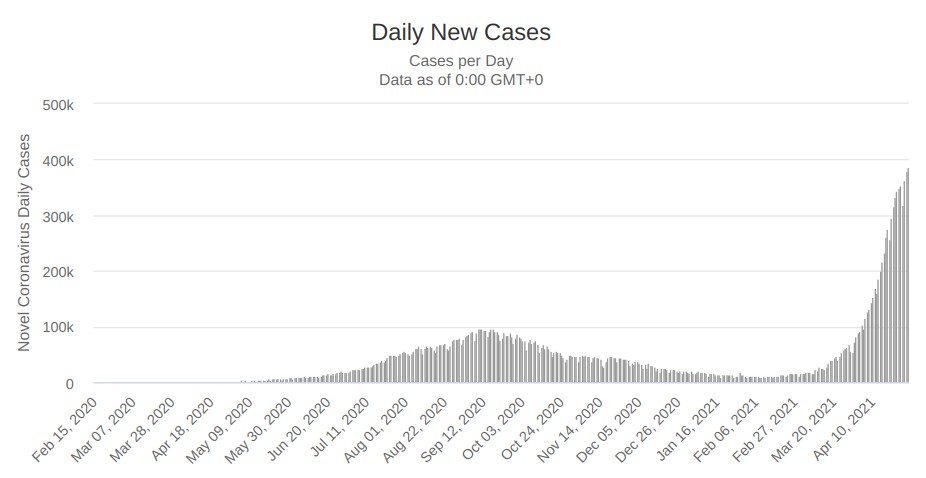
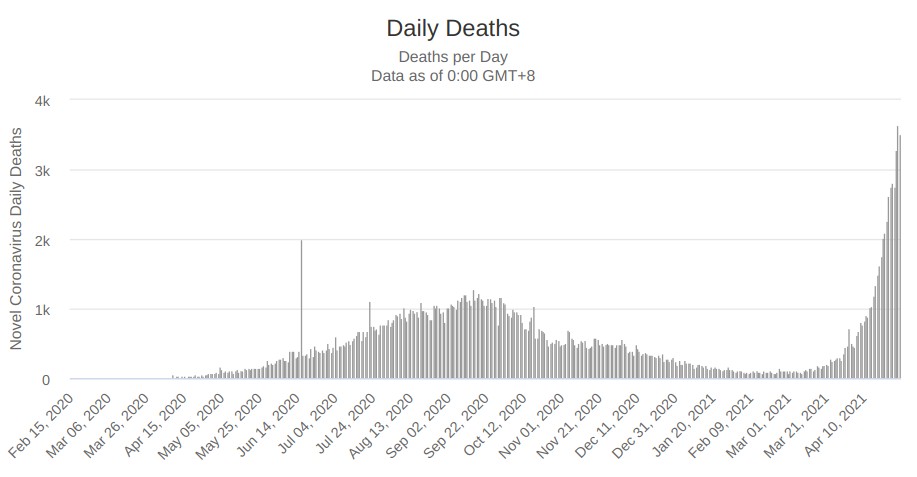
NPR reported this morning that daily death rates appear headed to the five-digit range.
I would recommend this photo essay from The Atlantic: Photos: A Deadly Second Wave of COVID-19 in India.
And let me add that I would like to see the US government doing more to help, to include sharing of vaccines, although I am going to have to admit I do not know enough to know more than we should be helping. Some movement on sharing AstraZeneca shots is in process (see the BBC: AstraZeneca: US to share up to 60m vaccine doses).
Here is what is going on at the moment, according to WaPo: U.S. coronavirus aid arrives in India as vaccine shortages hinder response.
A U.S. Air Force transport plane carrying oxygen cylinders, N95 masks and rapid diagnostic tests landed at the Indira Gandhi International Airport in Delhi on Friday morning, the first of several shipments that the White House pledged to help India combat the pandemic.
Chinese state media said the first batch of 25,000 oxygen concentrators pledged by Beijing to India also arrived Friday, the Associated Press reported.
“Just as India came to our aid early in the pandemic, the U.S. is committed to working urgently to provide assistance to India in its time of need,” Secretary of State Antony Blinken said Thursday on Twitter.
More at the link.

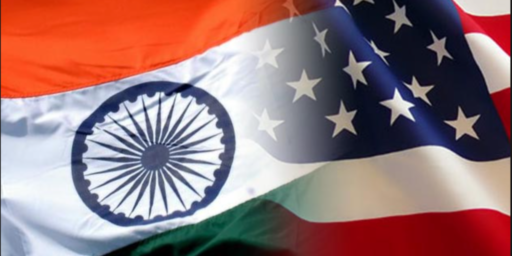



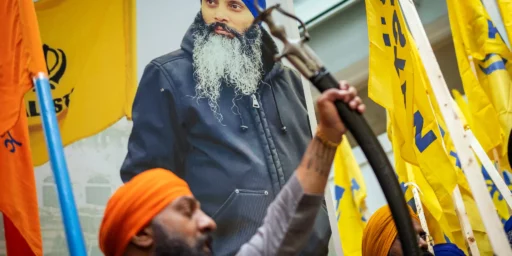
Last Monday, CNN reported that India had run out of oxygen and hospital beds. People are dying in the streets outside hospitals. At that time, the U.S. and the U.K. had pledged aid.
The Serum Institute of India is making the AstraZeneca/Oxford vaccine under license. They’ve been distributing them in India but also to other countries. I assume they’ll stop doing the latter if they haven’t already.
The big problem is India’s very large population of over 1.35 billion. Obtaining or making 2.6+ billion doses is a very hard thing. the Serum Institute projected production of 1 billion doses this year, for example.
The sixty million doses we’re sending to India would be enough to take care of, say, France. But it’s a drop in the Indian Ocean.
@Kathy: “For another, social sciences are pretty important, and Berkeley has some of the finest programs around.”
The other big problem is that Modi is a slightly more competent Trump — the only thing that matters to him is power, and to that end he has encouraged Hindu fundamentalist fanaticism, waged war on Indian Muslims, and insisted on holding huge political rallies and religious festivals to whip up his base. Actually dealing with the pandemic, apparently, was hard and not as fun as urging the murder of Muslims for the crime of eating beef.
Brazil is in a similar pickle, due to the incompetence of its president. They’ve just hit over 400,000 deaths and it doesn’t look like it will stop any time soon.
I go in for my first round of vaccine next week. Have no idea which one I’ll get, and I don’t think the hospital knows either. They use whatever they have the most of on hand that day.
@wr: Accidentally put the wrong quote on top. Sorry, Kathy!
@wr:
I kind of assumed that.
@grumpy realist:
I’ve no idea what vaccine I’ll get, or when. Soon, I expect an answer to the latter. As to the former, we have five vaccines in use: Pfizer, AstraZeneca, Sputnik V, Cansino, and Sinovac.
If it were my choice, I’d get Pfizer. I’d be ok with the first three, though I’ve doubts about the Russian one. The two Chinese vaccines suffer from little reliable info.
@CSK: The true horror of the situation is made clear when the hospitals and the crematoria are both being overwhelmed.
It’s frightening and scary what’s happening in India. And the official numbers are probably WAY under-counted.
This piece from NPR illustrates why that’s likely the case:
@Jen: India had a health system that was on the verge of failing even in the best of times. Add an epidemic on top of it and is it any surprise as to what is happening?
I really wonder if the presidents of both India and Brazil are just not caring about the death rate. Let a bunch of people die–the rich will be able to pay for better treatment and the poor, well, they’re a problem anyway, so we might as well let them die off. As long as the presidents can distract any complaints by banging the drum for nationalism or claiming to be worried about the economy if a real shutdown occurs, heck, why should they care?
Who was it who said “the death of an individual is a tragedy; the death of millions is a statistic”?